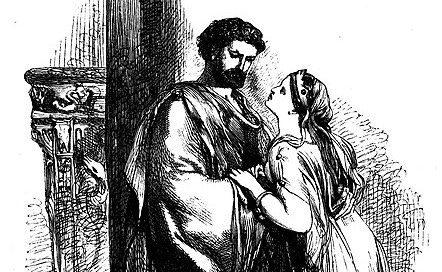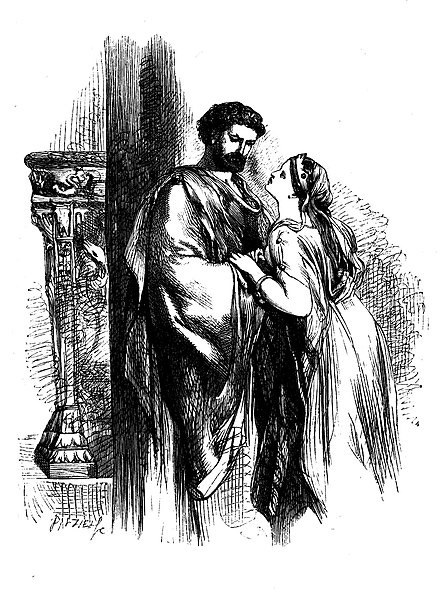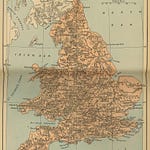Two thousand years ago, the poet Ovid was banished to the Roman province of Pontus, though we’re not sure why. The common wisdom, or rumor, was that he’d been having an affair with Augustus Caesar’s daughter Julia, who was exiled to the barren island of Pandataria at the same time, for her scandalous life. There was, however, a conspiracy against Augustus, and perhaps Ovid knew of it. In any case, this rascally genius who loved the city of Rome and wasn’t ever too fond of the country found himself far away in Tomis, on the shores of the Black Sea — the current city is called Constanza, and it is Romania’s principal port. Romanian is, as the name suggests, a Romance language, one of the daughters of Latin, and because the area became relatively isolated when the Slavs came invading, it preserves many features of Latin that French, for example, has lost. Anyway, Ovid, miserable as he was in that faraway land, invented the epistolary poem, writing sad letters in poetic form to try to win back Augustus’ favor. They did not succeed.
You see, Augustus, cold, ruthless, far-sighted, and immensely capable, had cast himself as a defender of traditional Roman ways, which he thought had fallen into abeyance. Chief among these was marriage, which the upper classes in the city had been avoiding. He sought to twist the men’s arms and get them to marry and stay married, to increase the population. In his own family, as you may have guessed, he was not always fortunate. In particular, before the Senate, in its regular spasms of flattery, surnamed him Augustus, Octavian was jockeying with his sometime fellow conspirator and rival, Mark Antony. In order to bind him and Antony in friendship, he offered his sister Octavia in marriage.
Octavia did love Antony, and Antony agreed to the marriage, but before too long he was back in Egypt, cavorting and scheming with his beloved Cleopatra. Let us just say that Antony handed Octavian the cause he needed to make a clean break with him and to range the Senate and popular opinion against him. So, with that in the background, this same Octavian, that is, this same Augustus Caesar was not going to have his own family provide examples of scandal for the empire. Ovid died in Tomis, lamenting to the last.
Our Poem of the Week doesn’t come from Ovid, though. It comes from Samuel Daniel, whom C. S. Lewis called the most fascinating man of letters in the Elizabethan and Jacobean age. Daniel wasn’t Shakespeare — who could be? But he wrote a wide variety of poems in some interesting genres, including a long historical poem on the Wars of the Roses, called The Civil Wars. He also revived the epistolary poem, the poem that is essentially a letter. Now, when the “author” of the letter is not the author of the letter, that is, when the poet adopts the persona of somebody writing a letter to somebody else, you’ve got a situation ideally set up for dramatic irony. That is because we must piece out the whole scene, standing “above” the author in the poem, guessing at what the recipient of the poem will think about it, and perhaps what the author in the poem gets wrong or does not say or merely implies. If the real author has chosen an historical figure, then we know what the author in the poem doesn’t know: we know how things are going to turn out.
So then, Daniel writes a poem of 51 stanzas, presented as a letter from Octavia to Mark Antony, who is off in Egypt having his fling with Cleopatra and leaving his wife behind in Rome, to her sorrow and to his shame, even if he isn’t ashamed as he should be. I’ve selected the last several stanzas of the poem. With a nice psychological touch, Daniel imagines that Octavia is not wholly pleased with people who come to pity her, because she understands that they are enemies of Antony. She wants him to return not only for her good but for his own honor. And she has a nightmare, a dream in which any of Daniel’s readers would have recognized the story of that Battle of Actium that decided Antony’s fate. The battle lay in doubt, or perhaps even was tilting Antony’s way, but Cleopatra, for some reason we can only surmise, suddenly withdrew her ships and fled, and Antony fled after her, yielding the victory to Octavian’s admiral, Agrippa, and, as it turned out, yielding rule of the whole Mediterranean world to Octavian, the Augustus Caesar to be. We know what Antony should have done, and Daniel makes Octavia appeal even to his own self-interest. We also know what Antony will do, to make Octavia’s foreboding dream a reality.
Do people still write epistolary poems? Yes, they do, but the real test is not whether you yourself can write a letter in poetic form, but whether you can do so while impersonating someone else as the “author,” and calling up an historical time and place with all their drama. By the way, I wrote two such poems, in blank verse, for my work The Hundredfold. One is a nervous and somewhat insolent letter of Pontius Pilate, imagined as in Spain years after the events in Palestine, writing to the emperor Claudius to defend his name against attacks on his administration of the province; the other is a reverent and pleading letter by Saint Paul to his old teacher, Gamaliel. In the much longer work I’m currently polishing up, there are several letters, among them one by this same Augustus Caesar, to Tiberius, his adopted “son” and successor. For Augustus pressured Tiberius to divorce the wife he loved, to marry Julia instead. In my letter, Augustus is aware of the scandal, and impatiently pleads with Tiberius to get over it, while Tiberius is sulking on the island of Rhodes, fed up with Rome and everybody in it. Oh, what beds people make for themselves to toss and turn in!
Listen to this episode with a 7-day free trial
Subscribe to Word & Song by Anthony Esolen to listen to this post and get 7 days of free access to the full post archives.













